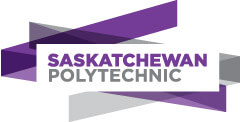About Power Engineering Technician Certificate in Saskatchewan Polytechnic
Program Overview
Power engineering technicians help keep power plants running safely and efficiently. A shortage of certified technicians means job opportunities have never been better. You could work in the oil patch, mining, manufacturing, energy, health and other industries. It’s a physical job that requires manual dexterity and good vision, as well as problem-solving skills and a knack for working with machinery.
Saskatchewan Polytechnic is Saskatchewan’s primary provider of power engineering certification. We offer two levels of training: the one-year Power Engineering Technician certificate program and the two-year Power Engineering Technology diploma program.
The one-year Power Engineering Technician certificate program is offered at Saskatchewan Polytechnic Regina Campus, and at Southeast College, (Estevan), Great Plains College (Swift Current), Parkland College (Yorkton), and Carlton Trail College (Humboldt). You’ll study Fourth Class interprovincial standardized material, which will prepare you to challenge interprovincial Fourth Class examinations.
You’ll receive practical training in boiler operations, maintenance techniques and tool use. You’ll develop troubleshooting skills in practical labs, get boiler firing time in the power lab and industry work experience in your second term.
The balance of hands-on labs, work experience and exam preparation makes Saskatchewan Polytechnic graduates productive on the job from day one—something employers look for when hiring and promoting.
Certification Opportunities
Power engineering is divided into levels of skill and training called classes (First Class is the highest level). You progress from one class to another through a combination of work experience, course completions and rigorous interprovincial exams.
As a Power Engineering Technician graduate, you’ll be prepared to challenge:
- TSASK (Technical Safety Authority of Saskatchewan) interprovincial (standardized) Fourth Class exams, and
- TSASK provincial Refrigeration Engineers Certificate exam, which allows you to operate larger refrigeration plans in Saskatchewan
Personal study is recommended before you write any industry certification exam.
Graduates are also eligible to enrol in Year 2 of the Power Engineering Technology program, based on seat availability.
Career and Salary Information
Your Career
Graduates are prepared to work as power engineers or process operators in a variety of industrial and heating plants. These include utility (power) plants, refineries, hospitals, pulp and paper mills, breweries, mines, gas processing plants, heavy oil upgraders, fertilizer plants or chemical plants.
Academic qualification equivalents:
- Secondary School Diploma or equivalent, include one English, Grade 12 (ENG4C or ENG4U), minimum 60%
English language requirements (one of the below):
- IELTS : Overall minimum score of Band 6.5 with a minimum score of 5.0 in each component.
- TOEFL : An overall minimum score of 81 on the Internet-based Test of English
- PTE : A minimum score of 63 with minimum component scores of 50.
Saskatchewan Polytechnic Highlights
| Type |
Public |
| Campus Setting |
Urban |
| Application mode |
Online and Paper mode available |
| Graduation rate |
62% |
| Acceptance rate |
96% |
| Number of Students |
16,008 |
| Overall cost of living |
14,762 CAD |
| Academic calendar |
Semester based |
| % of International students |
6% |
| Number of campuses |
4 |
| Medium of instructions |
English |
| Undergraduate Tuition fee |
14,044 CAD |
| Postgraduate Tuition fee |
16,426 CAD |
| Cost of living |
694 -1147 CAD per month |
Saskatchewan Polytechnic First-Year Tuition Fees And Living Expenses For International Students
Over the course of one academic year, the following graph displays tuition and living expense estimates in Canadian currency for one full-time international undergraduate student. Please bear in mind that these are only estimates; actual pricing will vary depending on your needs and preferences. Other factors to consider include currency changes, visa and study authorization fees, and vacations back home.
- For international students, the overall fees will range from:-
| Particulars |
Amount |
| Administrative fees |
50.00 to 150.00 CAD |
| Application fees |
150 CAD |
| Student association fee |
95.00 to 445.00 CAD |
| Non-refundable fee at the start) |
1,000 CAD |
| Tuition fee range |
6,195 to 18,089 CAD |
| Laboratory fee |
100.00 to 409.00 CAD with no fees for
some courses which do not have a lab service. |
| Books and Supplies |
200 to 3,725 CAD |
| Technology fee |
50 to 146 CAD |
- For a student of Saskatchewan Polytechnic the required financials (Cost of Attendance) can be:-
| Description of Financials |
Amount in CAD |
| Average cost of tuition |
11245.77 CAD |
| Cost of living |
10799.39 CAD |
| Application fee |
150 CAD |
| Estimated total (per year) |
22,195.16 CAD |
